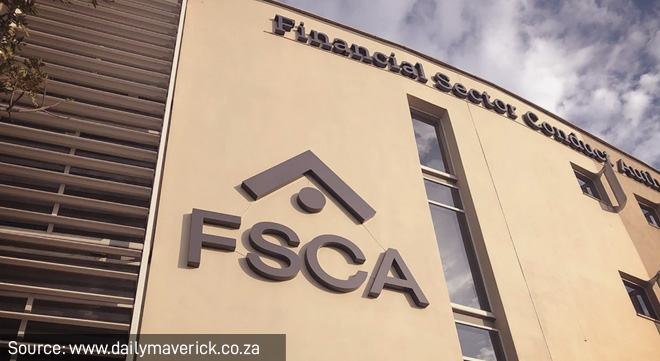The results of the first batch of applications for crypto asset service provider licences will be seen in the next few weeks.
In a MoneywebCrypto podcast hosted by freelance writer Ciaran Ryan, Gerhard van Deventer, the head of enforcement at the FSCA, said that, according to the latest statistics from the FSCA’s licensing division, 145 applications were received by the end November last year. Of these, 50 were presented to the Authority’s licensing committee in December.
“The results of those applications will be seen in the next few weeks,” said Van Deventer.
He added that, thus far, 20 licence applications have been withdrawn. One of the reasons for this is that several applicants’ businesses were not primarily focused on crypto, but “they saw an opportunity to add to their licence”.
“Once that interaction starts with the FSCA in the application process, then reality kicks in of what is necessary to get this licence, which is fairly heavy on the entity. Then some of them decided that they will leave it for another day when they actually decide to get into crypto,” he said.
Applicants also “got stuck” on the requirement to have an appropriate key individual (KI). Van Deventer said a KI needs to have specific and relevant experience, qualifications, and skills.
“And there’s not a lot of that around if you take into account that crypto hasn’t been around for a long time. So, in those instances, those applicants have also indicated that they will look for a suitable KI and then apply again at a later stage,” he said.
Crypto licence application process – what happens in the meantime
Businesses providing crypto-asset financial services had until 30 November last year to submit their licence applications. Unlicensed entities were required to submit a comprehensive licence application, while licensed FSPs had to seek approval to include crypto assets in their existing licences.
After the November deadline, individuals who did not submit a licence application and who continue to offer crypto financial services are deemed to be engaging in unauthorised or unregistered business. This could have legal consequences, including fines or imprisonment, or both, according to the FSCA.
Entities that did submit their licence applications by the deadline are allowed to continue operating until the application process concludes and the licence is either approved or declined by the FSCA.
Read: FSCA discloses how many crypto licence applications it is processing
Van Deventer said that everybody who submitted applications, no matter the merit, is permitted to continue providing this type of financial service – subject to certain conditions –until they are informed of the outcome of their application.
“But what it really means, the important part, is that anybody who did not get a licence application in must stop immediately. They are not allowed to (operate) anymore, they will be doing unregistered business,” he said.
Span of enforcement
Van Deventer said all entities that render crypto-related financial services business to the public require a licence issued by the FSCA.
“If somebody is trading in crypto for you, they need a licence. Don’t be fooled by the fact that they claim they don’t need a licence.”
What this also means is that the Authority’s enforcement team has access to its full investigative and enforcement powers when investigating dubious crypto providers.
“We belong to an international organisation of regulators and that translates into an international multilateral memorandum of understanding … I can get assistance from any other regulator in the world with our investigation, and I have to reciprocate as well. Because crypto, by definition, is a cross-border issue, so that helps us a lot in nailing down investigations,” said Van Deventer.
The FSCA’s enforcement team is just under 50 strong, ranging from assistant investigators to investigators, senior investigators and team leaders, as well as senior managers. Van Deventer said they have not yet added “a lot of additional numbers” to the team for crypto.
“We certainly are going to need more people. But you must also remember, the scams move from one session to another session, so it will die down in another arena as well.”
BHI Trust update
Talking about scams, Ryan asked Van Deventer how the FSCA’s investigation into BHI Trust was progressing.
Craig Warriner, the fund manager and a trustee of BHI Trust, handed himself over to the authorities in early October last year. He allegedly admitted to using the trust’s funds in a highly irresponsible manner.
Shortly after the scandal broke, the FSCA confirmed it was investigating the activities of the trust and the possibility that it was conducting unauthorised FSP business and unauthorised collective investment scheme (CIS) business. At the time, the FSCA confirmed that none of the parties under investigation was authorised as an FSP or licensed as a CIS manager.
On 7 December last year, the Authority confirmed that the investigation was continuing, with an expanded scope focused on authorised FSPs.
Read: FSCA asks BHI Trust investors to come forward with information on FSPs
Van Deventer said the Authority’s investigation was ongoing.



